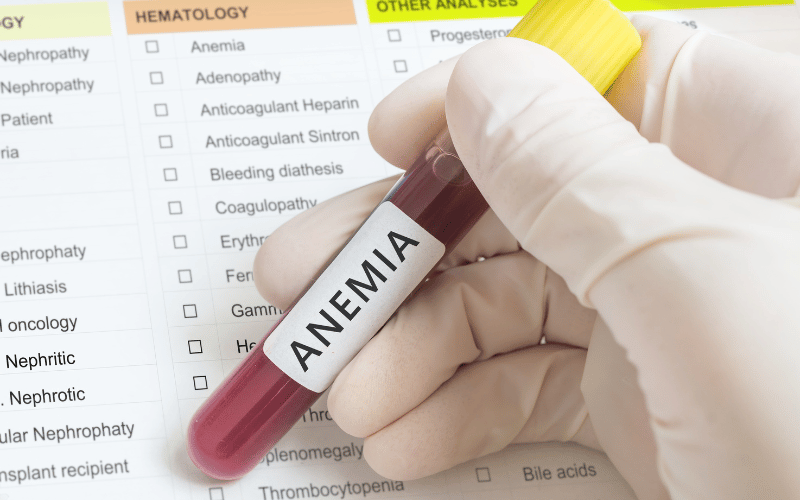2. Anemia: The Silent Indicator of Prolonged Gastrointestinal Issues

Anemia in the realm of PHG is primarily due to chronic gastrointestinal bleeding. The body loses red blood cells faster than it can replace them, leading to a shortage. This shortage means the blood can’t carry enough oxygen to the body’s tissues, resulting in various symptoms.
People with anemia often report feeling fatigued or weak. They might appear pale, particularly in the lower eyelids, and may experience shortness of breath or dizziness. Another less-considered symptom is a rapid or irregular heartbeat. As the heart struggles to deliver oxygen to the body’s tissues, it might beat faster or in an irregular pattern to compensate.
In PHG-induced anemia, the reason for these symptoms lies beneath the surface. The fragile vessels in the stomach, stressed from portal hypertension, slowly bleed out. Over time, this consistent loss of blood depletes the body’s stock of red blood cells.
An interesting fact about anemia is that its symptoms often go unnoticed in the initial stages. It’s only when anemia becomes more pronounced that people begin to notice the fatigue, paleness, and other associated symptoms. Thus, it’s often termed a “silent” ailment.
Anemia’s connection to PHG isn’t one to overlook. It’s a significant clue that there’s ongoing bleeding, and even if it isn’t causing immediate concern, the prolonged effects on the body can be detrimental. (2)